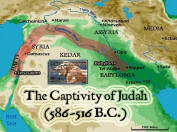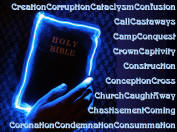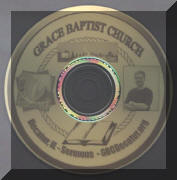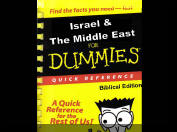Search Results for Old and Path and Preaching
Links
We are a KJV Bible, hymn singing, strong preaching, soul winning church. Don't expect anything liberal or trendy.
|
Videos
News
A late historian explores how crusade hymns told both the classic story of gospel salvation and the evolving story of evangelical worship music.
 Crowds of over 50,000. Famous special guests. Hundreds of cities in the US and around the world. Beloved, catchy songs. For many, these might sound like readouts from the Taylor Swift Eras Tour hype machine. But exchange the glittery girl power for the gospel in baritone, and you have one of the most successful musical touring acts in the postwar world: the Billy Graham Crusades.The first association that “Billy Graham Crusade” may evoke is not musical at all, but rather a close-up shot of the evangelist, with his penetrating, wide-eyed gaze and raised forearms, thundering, “The Bible says …” Admittedly, music was not the main focus.Yet as the late historian Edith Blumhofer shows in her final book, Songs I Love to Sing: The Billy Graham Crusades and the Shaping of Modern Worship, neither Graham’s ministry nor the late-century rise of contemporary Christian music can be understood without it. As crusade song leader Cliff Barrows pursued his main goal—“sing to save”—he and his teammates bridged stylistic, cultural, and generational divides, transforming evangelicals’ music into the harmonic blend of old and new that is familiar today.Mining rich resourcesBefore unpacking this highly original book, a few words about the author. Blumhofer is an American religious historian renowned for her empathetic biographies of hymnist Fanny J. Crosby and evangelist Aimee Semple McPherson, as well as broader studies of evangelicalism and Pentecostalism. She concluded her career with this new study, sadly succumbing to a battle with cancer in the process.To finish the project, she tapped Jesus People expert Larry Eskridge, with whom she had for many years directed the Institute ...Continue reading... Crowds of over 50,000. Famous special guests. Hundreds of cities in the US and around the world. Beloved, catchy songs. For many, these might sound like readouts from the Taylor Swift Eras Tour hype machine. But exchange the glittery girl power for the gospel in baritone, and you have one of the most successful musical touring acts in the postwar world: the Billy Graham Crusades.The first association that “Billy Graham Crusade” may evoke is not musical at all, but rather a close-up shot of the evangelist, with his penetrating, wide-eyed gaze and raised forearms, thundering, “The Bible says …” Admittedly, music was not the main focus.Yet as the late historian Edith Blumhofer shows in her final book, Songs I Love to Sing: The Billy Graham Crusades and the Shaping of Modern Worship, neither Graham’s ministry nor the late-century rise of contemporary Christian music can be understood without it. As crusade song leader Cliff Barrows pursued his main goal—“sing to save”—he and his teammates bridged stylistic, cultural, and generational divides, transforming evangelicals’ music into the harmonic blend of old and new that is familiar today.Mining rich resourcesBefore unpacking this highly original book, a few words about the author. Blumhofer is an American religious historian renowned for her empathetic biographies of hymnist Fanny J. Crosby and evangelist Aimee Semple McPherson, as well as broader studies of evangelicalism and Pentecostalism. She concluded her career with this new study, sadly succumbing to a battle with cancer in the process.To finish the project, she tapped Jesus People expert Larry Eskridge, with whom she had for many years directed the Institute ...Continue reading... |
? Temple Baptist Church - 4-17-2024John 15:11? Introduction:? A.? In verse 11, we find two kinds of “Joy.”? ? 1.? My Joy.? “remain in you”? A Joy that is found ONLY in Jesus Christ!? ? a)? The Joy of Salvation.? The Joy of Sanctification.? The Joy of Security.? The Joy of Serving.? ? b)? The Key words are “remain in” which implies that the joy of God is given to every believer and can be removed by the believer.? ? ? ? c)? “Living for Jesus” is a song that describes our Joy that is found in abiding in Jesus Christ:? Living for Jesus, a life that is true,Striving to please Him in all that I do;Yielding allegiance, glad-hearted and free,This is the pathway of blessing for me.Refrain:O Jesus, Lord and Savior, I give myself to Thee,For Thou, in Thy atonement, didst give Thyself for me;I own no other Master, my heart shall be Thy throne;My life I give, henceforth to live, O Christ, for Thee alone.Living for Jesus Who died in my place,Bearing on Calv'ry my sin and disgrace;Such love constrains me to answer His call,Follow His leading and give Him my all.Living for Jesus, wherever I am,Doing each duty in His holy Name;Willing to suffer affliction and loss,Deeming each trial a part of my cross.Living for Jesus through earth's little while,My dearest treasure, the light of His smile;Seeking the lost ones He died to redeem,Bringing the weary to find rest in Him.2.? Your Joy.? The key words here are “be full.”? The implication here is that the believer can have Joy to some degree and still not have fulness of Joy.? To have fulness of Joy is totally tied to the “My Joy” that is found only in our abiding in Christ.? “I had rather be an old time Christian that anything I know!”? Nehemiah 8:10? Then he said unto them, Go your way, eat the fat, and drink the sweet, and send portions unto them for whom nothing is prepared: for this day is holy unto our Lord: neither be ye sorry; for the joy of the LORD is your strength.? 3.? “Your Joy!”? I hear so much “Woe is me” preaching in our day.? People live lives of quiet desperation because of circumstances while God wants His people to enjoy life!? He wants them to enjoy His creation!? Proverbs 15:13? A merry heart maketh a cheerful countenance: but by sorrow of the heart the spirit is broken.? Proverbs 17:22? A merry heart doeth good like a medicine: but a broken spirit drieth the bones.? Ecclesiastes 2:24? There is nothing better for a man, than that he should eat and drink, and that he should make his soul enjoy good in his labour. This also I saw, that it was from the hand of God.? Ecclesiastes 3:10-13? I have seen the travail, which God hath given to the sons of men to be exercised in it.? (11)? He hath made every thing beautiful in his time: also he hath set the world in their heart, so that no man can find out the work that God maketh from the beginning to the end.? (12)? I know that there is no good in them, but for a man to rejoice, and to do good in his life.? (13)? And also that every man should eat and drink, and enjoy the good of all his labour, it is the gift of God.? Ecclesiastes 3:22? Wherefore I perceive that there is nothing better, than that a man should rejoice in his own works; for that is his portion: for who shall bring him to see what shall be after him?? Ecclesiastes 5:18-19? Behold that which I have seen: it is good and comely for one to eat and to drink, and to enjoy the good of all his labour that he taketh under the sun all the days of his life, which God giveth him: for it is his portion.? (19)? Every man also to whom God hath given riches and wealth, and hath given him power to eat thereof, and to take his portion, and to rejoice in his labour; this is the gift of God.? Ecclesiastes 8:15? Then I commended mirth, because a man hath no better thing under the sun, than to eat, and to drink, and to be merry: for that shall abide with him of his labour the days of his life, which God giveth him under the sun.? Ecclesiastes 9:7-9? Go thy way, eat thy bread with joy, and drink thy wine with a merry heart; for God now accepteth thy works.? (8)? Let thy garments be always white; and let thy head lack no ointment.? (9)? Live joyfully with the wife whom thou lovest all the days of the life of thy vanity, which he hath given thee under the sun, all the days of thy vanity: for that is thy portion in this life, and in thy labour which thou takest under the sun.? B.? What is this joy of Christ?? I want to look at the best definition that I have ever seen, and it comes from your Bible because “My Joy” is not found in our circumstances which are subject to change.? It is completely found in the “God of my salvation” and the “God … my strength!”? *** Habakkuk 3:17-19? Although the fig tree shall not blossom, neither shall fruit be in the vines; the labour of the olive shall fail, and the fields shall yield no meat; the flock shall be cut off from the fold, and there shall be no herd in the stalls: ? (18)? Yet I will rejoice in the LORD, I will joy in the God of my salvation. ? (19)? The LORD God is my strength, and he will make my feet like hinds' feet, and he will make me to walk upon mine high places. To the chief singer on my stringed instruments.? 1.? In these verses, we find both the “Cause” and “Effect” of the Christian's Joy.? The cause and effect is certainly not found in our circumstances as our days are so full for sin and sorrow!? Noah's Day, Lot's Day, Falling Away Days, Laodicean Days, Perilous Times all work together in our day to cause God's people to fret and fear.? Habakkuk used the word “Yet” to introduce “I will rejoice” and “I will joy!”? 2.? In Verses 18-19, we find the Cause of Joy:? a)? The God of my Salvation.? True Christian Joy comes from God in the form of Eternal Salvation.? John 15:13? Greater love hath no man than this, that a man lay down his life for his friends.? b)? The LORD God, my Strength.? True Christian Joy is maintained in the spiritual Strength that comes from God, not circumstances.? John 15:5? I am the vine, ye are the branches: He that abideth in me, and I in him, the same bringeth forth much fruit: for without me ye can do nothing.? 4.? In Verses 17-18, we find the Effect of Joy:? a)? Though things go wrong, and they do; though life is hard, and it is:? b)? Rejoicing comes from our inner fountain of Joy.? ? ? ? ? ? ? 5.? There was a day when praise and rejoicing were spontaneous, not something “worked up” by emotion.? “Popcorn Testimonies” have become a thing of the past.? We need to get our Joy back and Rejoicing will follow without having to be stirred or worked up.? Rejoicing is more than an emotion; it is a realization brought about by relationship and remembrance!? 6.? We live in days when pastors feel the necessity to stir our emotions with fleshly music and preaching as to produce rejoicing.? Thus, they become Promoters—not Pastors, Entertainers—not Preachers.? ? a.? A Pastor is none of these things.? He is to feed the flock of God, not stir them up.? Churches now have “Praise Leaders!”? ? b.? I find that preaching the Word is a divider because the Word brings about the knowledge of sin, the need for repentance, and division from the world.? c.? Rejoicing should be a spontaneous result of an inner Joy found in the Lord.? Rejoicing is a product of that inward Joy, not the cause of Joy.? Romans 12:12? ? Rejoicing in hope;? patient in tribulation; continuing instant in prayer;? Philippians 3:1? ? Finally, my brethren, rejoice in the Lord.? To write the same things to you, to me indeed is not grievous, but for you it is safe.? Philippians 4:4? ? Rejoice in the Lord alway: and again I say, Rejoice.? 7.? The hymns of the Faith no longer cause Rejoicing, so the modern day “church” is now in the “Entertainment Business” instead of reproving, rebuking, and Exhorting with all longsuffering and doctrine.? Modern day preaching and music reflect the world because most professing “Christians” are more worldly than spiritual.? C.? Both rejoicing and joy are to be despite our circumstances, not because of them!? Most Christians live in discouragement with little joy.? ? Why?? The answer is simple.? 1.? Because Of Sinfulness - Matthew 24:12? And because iniquity shall abound, the love of many shall wax cold.? ? (God's people are not drunks and harlots, but sin creeps in and we now walk at a guilty distance from God and the joy is gone.)? 2.? Because Of Our Situations - Matthew 14:30? But when he saw the wind boisterous, he was afraid; and beginning to sink, he cried, saying, Lord, save me.? ? (God's people have their eyes upon the “wind and waves” of circumstance and not upon Christ.? When Peter looked up instead of looking down, he saw the Lord of the “wind and waves” and once again walked on the water.)? D.? Many Christians live in defeat with no joy at all.? 1.? For The World, Joy Is Found In Circumstances – Luke 12:16-21? And he spake a parable unto them, saying, The ground of a certain rich man brought forth plentifully:? And he thought within himself, saying, What shall I do, because I have no room where to bestow my fruits?? And he said, This will I do: I will pull down my barns, and build greater; and there will I bestow all my fruits and my goods.? ? And I will say to my soul, Soul, thou hast much goods laid up for many years; take thine ease, eat, drink, and be merry.? But God said unto him, Thou fool, this night thy soul shall be required of thee: then whose shall those things be, which thou hast provided?? So is he that layeth up treasure for himself, and is not rich toward God.? 2.? For The Christian, Joy Is Found Despite Circumstances - 2 Corinthians 7:4? Great is my boldness of speech toward you, great is my glorying of you: I am filled with comfort, I am exceeding joyful in all our tribulation.? 2 Corinthians 8:2? How that? in a great trial of affliction the abundance of their joy and their deep poverty? abounded unto the riches of their liberality.Colossians 1:11? Strengthened with all might, according to his glorious power,? unto all patience and longsuffering with joyfulness;? 1 Thessalonians 1:6? And ye became followers of us, and of the Lord,? having received the word in much affliction, with joy of the Holy Ghost:? E.? Loss of joy comes through:? 1.? Losing the freshness of our salvation.? 2.? Losing the burning love for our Saviour.? 3.? Losing the excitement of our service.? WHERE THE CHRISTIAN FINDS HIS JOY? 1.? Christian Joy Is Found In Salvation - Luke 10:20? Notwithstanding in this rejoice not, that the spirits are subject unto you; but rather rejoice, because your names are written in heaven.? Psalms 35:9? And my soul shall be joyful in the LORD: it shall? rejoice in his salvation.? Psalms 51:12? Restore unto me? the joy of thy salvation; and uphold me with thy free spirit.? Psalms 132:16? I will also clothe her priests? with? salvation: and her saints shall shout aloud for joy.? Isaiah 12:3? Therefore? with joy? shall ye draw water out of the wells of salvation.? 2.? Christian Joy Is Found In The Holy Ghost - Romans 15:13? Now the God of hope fill you with all joy and peace in believing,? that ye may abound in hope, through the power of the Holy Ghost.? Joy Is Not Found In The Things Of The World - Romans 14:17? For the kingdom of God is not meat and drink;? but righteousness, and peace, and joy in the Holy Ghost.? 3.? Christian Joy Is Found In God's Word - Nehemiah 8:9-12? And Nehemia
|
 See previous "Grace Notes" Newsletters
In this edition:
3 Fresh new PowerPoint Sermons
First Timer Info.
from Pastor Jerry:
"I love expository preaching -- letting the Word of God do the work of God. And it's amazing how God makes the topics fit the needs of the hour for each and every person present. And then when you talk on delicate subjects it is not you speaking but the Lord. And the reason you dealt with it is not because of a present issue in the church but because it was the next subject in the text. God bless you and HIS ministry thru you there!" See previous "Grace Notes" Newsletters
In this edition:
3 Fresh new PowerPoint Sermons
First Timer Info.
from Pastor Jerry:
"I love expository preaching -- letting the Word of God do the work of God. And it's amazing how God makes the topics fit the needs of the hour for each and every person present. And then when you talk on delicate subjects it is not you speaking but the Lord. And the reason you dealt with it is not because of a present issue in the church but because it was the next subject in the text. God bless you and HIS ministry thru you there!"
 3/22/09
- "Captivity" - 1 Kings 12 3/22/09
- "Captivity" - 1 Kings 12 Amazing similarities exist between Israel and America - from their founding to
civil war to
sinful rejection of God...to the 70 year captivity!
ÂÂ
Click to see the Series
Amazing similarities exist between Israel and America - from their founding to
civil war to
sinful rejection of God...to the 70 year captivity!
ÂÂ
Click to see the Series
 3/22/09
- "Construction" - Ezra / Nehemiah
Anytime the people of God say let us rise up and build the devil and his forces
rise up in opposition. Rebuilding Jerusalem, the Temple, and the Walls, and the
coming reunification of Israel.
ÂÂ
 3/22/09
- "Construction" - Ezra / Nehemiah
Anytime the people of God say let us rise up and build the devil and his forces
rise up in opposition. Rebuilding Jerusalem, the Temple, and the Walls, and the
coming reunification of Israel.
ÂÂ
ÂÂ
  3/18/09
- "Good Words for
Bad Days" - 2 Thessalonians 1:1-12
Bad words may be the first to come to mind when times are hard. But our text has
some encouraging good words, particularly right now.
Click to see the Series
Stimulus Sale!  Best Deal! 3/18/09
- "Good Words for
Bad Days" - 2 Thessalonians 1:1-12
Bad words may be the first to come to mind when times are hard. But our text has
some encouraging good words, particularly right now.
Click to see the Series
Stimulus Sale!  Best Deal!  The Complete CollectionEverything we offer [all 21 series] in simple download format. 1600+ Files! Includes newly released series.
Price: 149.99 USD
You save $630 when you order the above!
 And there's free shipping / no waiting when you use Instant Download …  ÂÂ
Or, get it by mail in about 3 days on a CD ROM here.ÂÂ
 [Hurry -- Prices subject to change]
First Timer?...Here's some Tips on getting the helps you need:  ÂÂ
We work hard to gather the best of free resources from numerous corners of the globe, and it's our privilege to share them all for free with you simply for the furthering of the Gospel, the growth of the Kingdom, and the joy of sharing!
 ÂÂ
Please feel free to copy and paste any of Pastor Jerry's original manuscripts from the site. You are free to use them in live services without giving credit, along with the PowerPoint visuals provided. Our CD ROMs are available by snail mail or Instant Download as a convenience only, but your purchases help support this growing ministry. There are many benefits to getting our resources in this way, but as always, all materials are free to copy from the site if you don't mind the work and know how to retrieve them.
 ÂÂ
The Complete CollectionEverything we offer [all 21 series] in simple download format. 1600+ Files! Includes newly released series.
Price: 149.99 USD
You save $630 when you order the above!
 And there's free shipping / no waiting when you use Instant Download …  ÂÂ
Or, get it by mail in about 3 days on a CD ROM here.ÂÂ
 [Hurry -- Prices subject to change]
First Timer?...Here's some Tips on getting the helps you need:  ÂÂ
We work hard to gather the best of free resources from numerous corners of the globe, and it's our privilege to share them all for free with you simply for the furthering of the Gospel, the growth of the Kingdom, and the joy of sharing!
 ÂÂ
Please feel free to copy and paste any of Pastor Jerry's original manuscripts from the site. You are free to use them in live services without giving credit, along with the PowerPoint visuals provided. Our CD ROMs are available by snail mail or Instant Download as a convenience only, but your purchases help support this growing ministry. There are many benefits to getting our resources in this way, but as always, all materials are free to copy from the site if you don't mind the work and know how to retrieve them.
 ÂÂ
 Have you heard? All of our collections are downloadable, instantly. It’s the same CD-ROMs only without the CD. Download straight to your hard drive on up to 3 PCs, and burn a copy to take with you if you want. No waiting, no shipping charges, and all files and folders are organized for you with no need for conversion or re-formatting.
ÂÂ
Prices listed good for 1 week only. Click link below for any recent changes.
Click here to see our “Instant Download†PageÂÂ
Have you heard? All of our collections are downloadable, instantly. It’s the same CD-ROMs only without the CD. Download straight to your hard drive on up to 3 PCs, and burn a copy to take with you if you want. No waiting, no shipping charges, and all files and folders are organized for you with no need for conversion or re-formatting.
ÂÂ
Prices listed good for 1 week only. Click link below for any recent changes.
Click here to see our “Instant Download†Page  "Ark Almighty" - Hebrews 11:7
Uses "Evan Almighty" theme - GET SAVED, GET RIGHT, GET INTO CHURCH! How parents of today can construct an ark of protection for their household.ÂÂ
ÂÂ
ÂÂ
 ÂÂ
ÂÂ
"Ark Almighty" - Hebrews 11:7
Uses "Evan Almighty" theme - GET SAVED, GET RIGHT, GET INTO CHURCH! How parents of today can construct an ark of protection for their household.ÂÂ
ÂÂ
ÂÂ
 ÂÂ
  "Allah is NOT My God" - Genesis 16:11-12
The real ‘Path to 911’ started with Ishmael. A study of the differences between Christians and Muslims, Jehovah God and Allah, and Jesus Christ and Mohammed. Islam is not just another denomination down the street. Learn what they believe and why, and the terrorism connection in light of Bible Prophecy.
ÂÂ
 "Allah is NOT My God" - Genesis 16:11-12
The real ‘Path to 911’ started with Ishmael. A study of the differences between Christians and Muslims, Jehovah God and Allah, and Jesus Christ and Mohammed. Islam is not just another denomination down the street. Learn what they believe and why, and the terrorism connection in light of Bible Prophecy.
ÂÂ
ÂÂ
 "Israel & The Middle East For Dummies"ÂÂ
- Genesis 12:1-3; 16:1-4; Psalm 122:6
Christians of all people should not be ignorant of these things, and the signs of the 'end times' now upon us.
For a limited time these sermons come as free gifts when you order our ‘Complete Collection’ÂÂ
 "Israel & The Middle East For Dummies"ÂÂ
- Genesis 12:1-3; 16:1-4; Psalm 122:6
Christians of all people should not be ignorant of these things, and the signs of the 'end times' now upon us.
For a limited time these sermons come as free gifts when you order our ‘Complete Collection’ÂÂ
  Call us if you have any trouble using your credit card thru PayPal: 217-877-0009 [Note: We cannot process orders by phone, but still may be able to help with your online order or by snail mail order. You may need to leave a message for call back.]
If you prefer, you may send a check to:                ÂÂ
Grace Notes
3770 N. Water St
Decatur,
IL
ÂÂ
62526
[please add $5 for processing and include the email address you'd like your download link sent to, or physical address if you prefer to receive it by mail as a CD ROM]ÂÂ
More questions? Call us at 217-877-0009 or Write us.
  ÂÂ
You say: "It's amazing that this ministry is free...no one else is doing this with Sermons and PowerPoints"  ÂÂ
We say: Please help keep it free by honoring our system:ÂÂ
By design and intent, this sermon service will always be free-but this is made possible by those of you who take the brief moment required to vote for the sermons after you click on them. You do this from the link on each sermon’s page which says…
Click here to recommend this sermon ministry to others.ÂÂ
Help spread the Word by casting your vote...it's a proven system that keeps this ministry free!
If you don’t, it’s still free…But many thanks go to those who help make it free for everyone and are helping to spread the Word in the process…you too have the “spirit of sharing†and are a great part of this ministry!ÂÂ
How have some received a series at no cost?
 ÂÂ
Benefits to CD-ROMs:
·        No downloading, no waiting, no confusion.
·        No cutting and pasting. Text comes completely formatted in Microsoft Word.
·        No hassles converting PowerPoint "pps" files to "ppt".
·        Already organized in folders for easy indexing.
*Remember, all sermons on the site are free to download if you don't mind the work.
 ÂÂ
Your Feedback:
ÂÂ
“I received my CD...these sermons will be a great help to me. My situation limits how much time I can put into sermon preparation. Grace Notes gets me started, and then the Lord helps me to make it my own.â€Â           Pastor-USA
 ÂÂ
Welcome to many new subscribers this week, you number in the thousands…to God be the glory! You can help broaden our influence when you forward these links to others you believe may benefit. They can sign up at the “Grace Notes†homepage.ÂÂ
ÂÂ
Those who want to say “thank youâ€Â…please, just vote for the sermons at the link on each sermon’s own page and forward these links to others…it all helps this ministry expand which in turn helps the Kingdom of God to grow…which is what it’s all about.
International Users:  Don’t forget to sign the GuestMap below and show us ‘where in the world you are!’ Call us if you have any trouble using your credit card thru PayPal: 217-877-0009 [Note: We cannot process orders by phone, but still may be able to help with your online order or by snail mail order. You may need to leave a message for call back.]
If you prefer, you may send a check to:                ÂÂ
Grace Notes
3770 N. Water St
Decatur,
IL
ÂÂ
62526
[please add $5 for processing and include the email address you'd like your download link sent to, or physical address if you prefer to receive it by mail as a CD ROM]ÂÂ
More questions? Call us at 217-877-0009 or Write us.
  ÂÂ
You say: "It's amazing that this ministry is free...no one else is doing this with Sermons and PowerPoints"  ÂÂ
We say: Please help keep it free by honoring our system:ÂÂ
By design and intent, this sermon service will always be free-but this is made possible by those of you who take the brief moment required to vote for the sermons after you click on them. You do this from the link on each sermon’s page which says…
Click here to recommend this sermon ministry to others.ÂÂ
Help spread the Word by casting your vote...it's a proven system that keeps this ministry free!
If you don’t, it’s still free…But many thanks go to those who help make it free for everyone and are helping to spread the Word in the process…you too have the “spirit of sharing†and are a great part of this ministry!ÂÂ
How have some received a series at no cost?
 ÂÂ
Benefits to CD-ROMs:
·        No downloading, no waiting, no confusion.
·        No cutting and pasting. Text comes completely formatted in Microsoft Word.
·        No hassles converting PowerPoint "pps" files to "ppt".
·        Already organized in folders for easy indexing.
*Remember, all sermons on the site are free to download if you don't mind the work.
 ÂÂ
Your Feedback:
ÂÂ
“I received my CD...these sermons will be a great help to me. My situation limits how much time I can put into sermon preparation. Grace Notes gets me started, and then the Lord helps me to make it my own.â€Â           Pastor-USA
 ÂÂ
Welcome to many new subscribers this week, you number in the thousands…to God be the glory! You can help broaden our influence when you forward these links to others you believe may benefit. They can sign up at the “Grace Notes†homepage.ÂÂ
ÂÂ
Those who want to say “thank youâ€Â…please, just vote for the sermons at the link on each sermon’s own page and forward these links to others…it all helps this ministry expand which in turn helps the Kingdom of God to grow…which is what it’s all about.
International Users:  Don’t forget to sign the GuestMap below and show us ‘where in the world you are!’  Get a custom logo like ours at Faith's
Attic
ÂÂ
Have a wonderful day, be blessed, and enjoy!     ÂÂ
Pastor Jerry Shirley & Grace Notes Staff
              See our Help Section    See previous "Grace Notes" Newsletters
Get a custom logo like ours at Faith's
Attic
ÂÂ
Have a wonderful day, be blessed, and enjoy!     ÂÂ
Pastor Jerry Shirley & Grace Notes Staff
              See our Help Section    See previous "Grace Notes" Newsletters
|



 Links
Links  Articles
Articles  Blogs
Blogs  Videos
Videos  News
News  Colors
Colors 

 New links
New links





